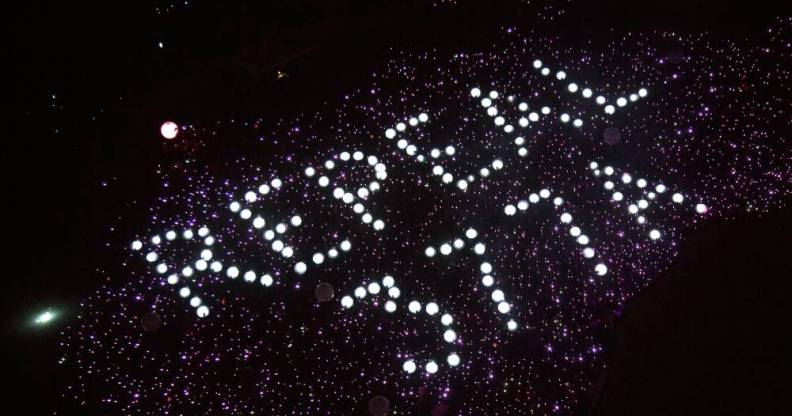Singapore court refuses to overturn archaic gay sex ban: ‘It tells queer men they are criminals’

Attendees form the characters Repeal 377A in a call to repeal the section of Singapore’s penal code which criminalises sex between men on 29 June 2019. (Getty/Ore Huiying)
Singapore’s top court has dismissed a challenge to a law criminalising sex between men, but campaigners have vowed to keep fighting.
A panel of judges on the Court of Appeal on Monday (28 February) dismissed an appeal by three gay men, arguing they “do not face any real and credible threat of prosecution” under the law.
Section 377A was introduced in 1938 when the city-state was under British colonial rule. It prohibits consensual, same-sex sexual activity between men, and anyone found guilty of breaking the law can face up to two years imprisonment.
The ruling acknowledged the legislation has “long been a lightning rod for polarisation”, but the court did not find it to be a breach of the constitution. While the court failed to overturn the legislation, it did reinforce a suspension on the enforcement and arrest of men who engage in gay sex.
The latest ruling was a challenge against a High Court decision in 2020.
Singapore’s High Court dismissed three challenges to the law, which were heard together. The appeals were brought by Johnson Ong Ming, a DJ; Bryan Choong Chee Hoong, the former executive director of LGBT+ organisation Oogachaga; and Roy Tan Seng Kee, a retired medical doctor.
The court dismissed the three campaigners’ arguments that 377A was enacted in 1938 to curb commercial gay sex among British colonial civil servants, that queer men are “doubly criminalised” by the law and that a person’s sexual orientation can’t be changed.
The three men brought a challenge against the High Court ruling in 2021, saying the judge’s interpretation was wrong.
While the Court of Appeal did ultimately dismiss their case, the panel of judges did rule that Section 377A was legally “unenforceable”. The judges noted that the law remained because of its “symbolic weight for the conservative mainstream in Singapore”.
But they said the legislation “would not be proactively enforced” because of statements made in parliament by prime minister Lee Hsien Loong in 2007. The court noted that this sentiment was later echoed in a press release by attorney general Lucien Wong in 2018.
The judges ruled the “entirety” of 377A is “unenforceable unless and until the [attorney general] of the day provides clear notice” that they intend to enforce it.
Tan said he welcomed the Court of Appeal’s statement that the legislation was “unenforceable”, but he told AFP that the ruling doesn’t go far enough as the law “remains on the books”.
He described 377A as a “huge signpost to society that gay men are still criminals, even though they may not be prosecuted”.
Tan said he also intended to pursue fresh legal challenges in the future.
Choong added that the campaigners are “upset and disappointed with the judgement”. But he said the ruling “does not mean our work to make Singapore a more inclusive and accepting society will stop”.
Téa Braun, chief executive of Human Dignity Trust, said the Court of Appeal’s ruling means that queer men in Singapore are “still effectively un-apprehended criminal and subject to a culture of shame and homophobia” because the judges declined to strike out the law.
Braun added that the colonial-era law has “no place in a 21st century democracy” and that the government must strike out anti-LGBT+ laws.
“Now that the fight is over in the courts, the Singaporean government must now match the great strides made recently in modernising other sexual offences legislation by reforming the criminal law that discriminates against LGBT people,” said Braun.
“Laws, which in 1938 were meant to express society’s views about sex acts between men, have no place in a 21st century democracy such as Singapore.”

